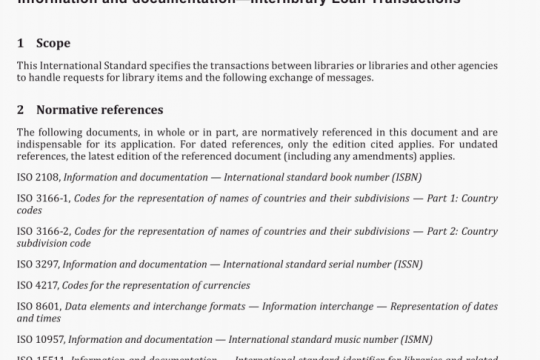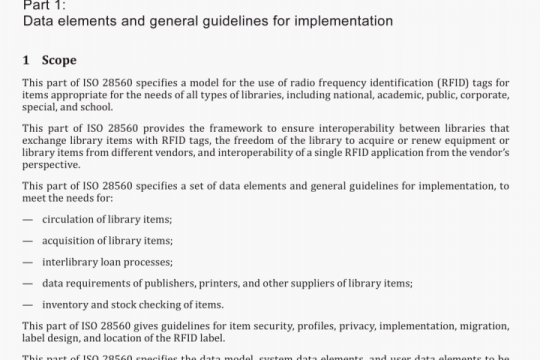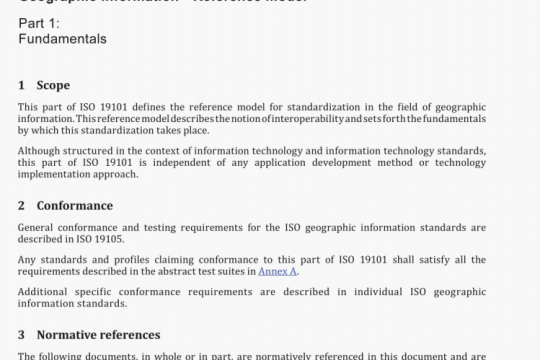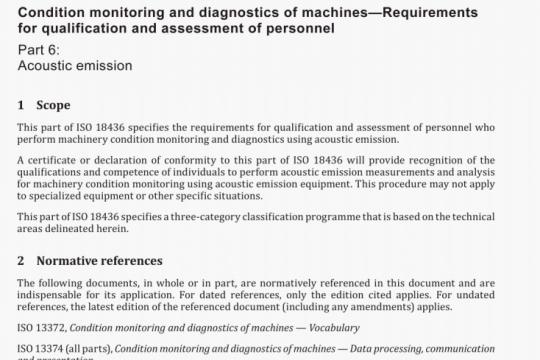ISO 19679:2020 pdf free
ISO 19679:2020 pdf free.Plastics一Determination of aerobic biodegradation of non-floating plastic materials in a seawater
pre-incubation of an inoculum under the conditions of the subsequent test in the absence of test material, with the aim to consume potential organic matter present in excess that could disturb biodegradation measurement and to improve the acclimatization of the microorganisms to the test conditions
This test method is based on the determination of evolved CO2 and derives from ISO 14852. The testing medium is based on a solid phase and a liquid phase. The solid phase is a sandy marine sediment laid in the bottom of a closed flask; the liquid phase is a column of natural or artificial sea water, poured on the sediment. The test material is preferably in the form of a film to be laid down on top of the sediment, at the interface between the solid phase and the liquid phase. This is a simulation of an object that has sunk and finally reached the sea floor. The system is contained in a closed flask.
The CO2 evolved during the microbial degradation is determined by a suitable analytical method. The level of biodegradation is determined by comparing the amount of CO2 evolved with the theoretical amount (ThCO2) and expressed in percentage. The test result is the maximum level of biodegradation,determined from the plateau phase of the biodegradation curve. The principle of a system for measuring evolved CO2 is given in ISO 14852:2018, Annex A.
The details of interlaboratory testing based on the test method specified in this document are available in Reference [6].
Incubation shall take place in the dark or in diffuse light in an enclosure which is free from vapours inhibitory to microorganisms and which is maintained at a constant temperature, preferably between 15 °C to 25 °C, but not exceeding 28 °C, to an accuracy of±2 °C. Any change in temperature shall be justified and clearly indicated in the test report.ISO 19679 pdf download.




